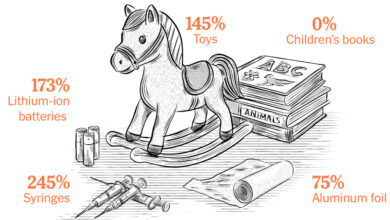Pig Kidney Removed From Alabama Woman After Organ Rejection

An Alabama woman had a genetically engineered pig’s kidney removed by surgeons at NYU Langone Health after experiencing acute organ rejection, officials announced on Friday.
Towana Looney, 53, lived with the kidney for 130 days, setting a record for the longest duration anyone has tolerated an organ from a genetically modified animal. She has since resumed dialysis, according to hospital officials.
Dr. Robert Montgomery, the surgeon who operated on Ms. Looney and the director of the NYU Langone Transplant Institute, stated that the removal of the kidney was not a setback for xenotransplantation, the field aiming to use animal organs for human transplants.
“This is the longest lifespan observed for one of these organs,” he said, noting that Ms. Looney’s complex medical conditions may have influenced the outcome.
Dr. Montgomery emphasized the importance of incremental improvements in the field, stating, “This game will be won through small advancements, not by aiming for major breakthroughs.”
Although further treatment could have potentially saved the organ, Ms. Looney and her medical team decided against it in favor of prioritizing safety, according to Dr. Montgomery.
Another patient, Tim Andrews, has been living with a genetically modified pig kidney since January 25, experiencing hospitalizations for biopsies, as reported by doctors at Massachusetts General Hospital.
Unfortunately, two patients who received similar kidneys in the past passed away, as did two patients who received genetically modified pig hearts.
Ms. Looney, now back in Alabama after her treatment in New York, expressed gratitude for participating in the innovative procedure, stating that she learned valuable lessons during her 130 days with a pig kidney.
“For the first time since 2016, I enjoyed time with friends and family without planning around dialysis treatments,” Ms. Looney shared in a statement provided by NYU Langone.
Despite the disappointing outcome, Ms. Looney believes that her experience can benefit others facing kidney disease, highlighting the potential for future advancements in the field.
Following rejection of the organ, Ms. Looney’s kidney function declined, prompting further investigation into the cause, as explained by Dr. Montgomery.
The decrease in immunosuppressive medications due to an unrelated infection likely contributed to the rejection, he added.
The initial indication of trouble came from a blood test in Alabama showing elevated creatinine levels, signaling potential kidney function issues.
Ms. Looney was admitted to the hospital as her creatinine levels continued to rise, leading to a biopsy in New York that confirmed rejection of the kidney, ultimately resulting in its removal last Friday.
The decision to remove the kidney was made collaboratively by Ms. Looney and her medical team, prioritizing safety over additional immunosuppression, according to Dr. Montgomery.
United Therapeutics Corporation, the biotech company behind the pig providing Ms. Looney’s kidney, expressed gratitude for her bravery and acknowledged the organ’s successful function until rejection.
The company plans to initiate a clinical trial for pig kidney transplantation this year, starting with six patients and expanding to 50 over time.
Pig organs offer a potential solution to the shortage of donated organs, particularly kidneys, given the high demand and limited availability of human organs.
With over 550,000 Americans requiring dialysis for kidney failure and a significant number on transplant waiting lists, the development of xenotransplantation holds promise for addressing this critical healthcare challenge.





